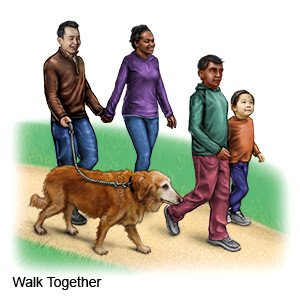Depressive Disorder in Adolescents
Medically reviewed by Drugs.com. Last updated on Aug 4, 2025.
AMBULATORY CARE:
A depressive disorder
is a medical condition that causes feelings of sadness or hopelessness that do not go away. These feelings last longer than usual and interfere with your daily life. A depressive disorder may be caused by changes in brain chemicals that affect your mood. Stress, a family history of depression, and conditions such as ADHD can increase the risk for a depressive disorder. Do not wait for the feelings to go away. A depressive disorder can be treated.
Call your local emergency number (911 in the US) if:
- You feel like harming yourself or someone else.
Call your therapist or doctor, or have someone call if:
- Your symptoms do not improve.
- You cannot make it to your next appointment.
- You have new symptoms.
- You have questions or concerns about your condition or care.
Common signs and symptoms of a depressive disorder:
A depressive disorder can cause you to lose interest in things and sometimes the people you used to enjoy. You may also have any of the following:
- Appetite changes, or weight gain or loss
- Trouble going to sleep or staying asleep, waking earlier than usual, or sleeping too much
- Lack of energy, motivation, or interest in enjoyable activities
- Feeling restless, irritable, or withdrawn
- Feeling worthless, hopeless, discouraged, or guilty
- Trouble concentrating, remembering things, doing daily tasks, or making decisions
- Thoughts of self-harm, suicide, or your own death
Treatment is available and may include any of the following:
- Mental health therapies may include the following:
- Cognitive behavioral therapy (CBT) helps you create more realistic, appropriate thoughts about yourself and your behaviors. You may work individually with a mental health provider. CBT may also be done with a group of adolescents that have a depressive disorder. CBT may be combined with medicines that help treat your depressive disorder.
- Interpersonal therapy (IPT) helps you connect to other people by understanding their feelings and views. IPT also helps you communicate better with friends and family members.
- Antidepressant medicine may be given to improve or balance your mood. You may need to take this medicine for several weeks before you begin to feel better. Tell your healthcare provider about any side effects or problems you have with your medicine. The type or amount of medicine may need to be changed.
If you need to talk to someone:
- Talk to someone you trust. If you feel like you cannot talk to your parents, talk to a school nurse or counselor. Tell someone about your feelings and thoughts. Tell the person if you feel like you might harm yourself. Tell him or her if you are being bullied by someone.
- Talk with your friends. Your friends can listen and understand how you feel. Your friends can support you and help you focus on positive things in your life.
- Contact a crisis hotline: Many crisis hotlines are available to help you 24 hours a day, 7 days a week.
- Contact a suicide prevention organization:
- For the 988 Suicide and Crisis Lifeline:
- Call or text 988
- Send a chat on https://988lifeline.org/chat
- Call 1-800-273-8255 (1-800-273-TALK)
- For the Suicide Hotline, call 1-800-784-2433 (1-800-SUICIDE)
- For the 988 Suicide and Crisis Lifeline:
- For a list of international numbers: https://save.org/find-help/international-resources/
- Contact a suicide prevention organization:
What you can do to help yourself feel better:
- Get regular physical activity. Try to get at least 1 hour of physical activity every day, such as going for a walk. Physical activity can improve depression and help you sleep better.

- Get enough sleep. Create a routine to help you relax before bed. Listen to music, read, or do yoga. Try to go to bed and wake up at the same time every day. Sleep is important for emotional health.
- Eat a variety of healthy foods. Healthy foods include fruits, vegetables, whole-grain breads, low-fat dairy products, beans, lean meats, and fish. A healthy meal plan is low in fat, salt, and added sugar. Ask your healthcare provider for more information about a meal plan that is right for you.

- Do not drink alcohol or use drugs. Alcohol and drugs can make your symptoms worse.
Follow up with your therapist or doctor as directed:
Take your journal. Write down your questions so you remember to ask them during your visits.
© Copyright Merative 2025 Information is for End User's use only and may not be sold, redistributed or otherwise used for commercial purposes.
The above information is an educational aid only. It is not intended as medical advice for individual conditions or treatments. Talk to your doctor, nurse or pharmacist before following any medical regimen to see if it is safe and effective for you.
Further information
Always consult your healthcare provider to ensure the information displayed on this page applies to your personal circumstances.
